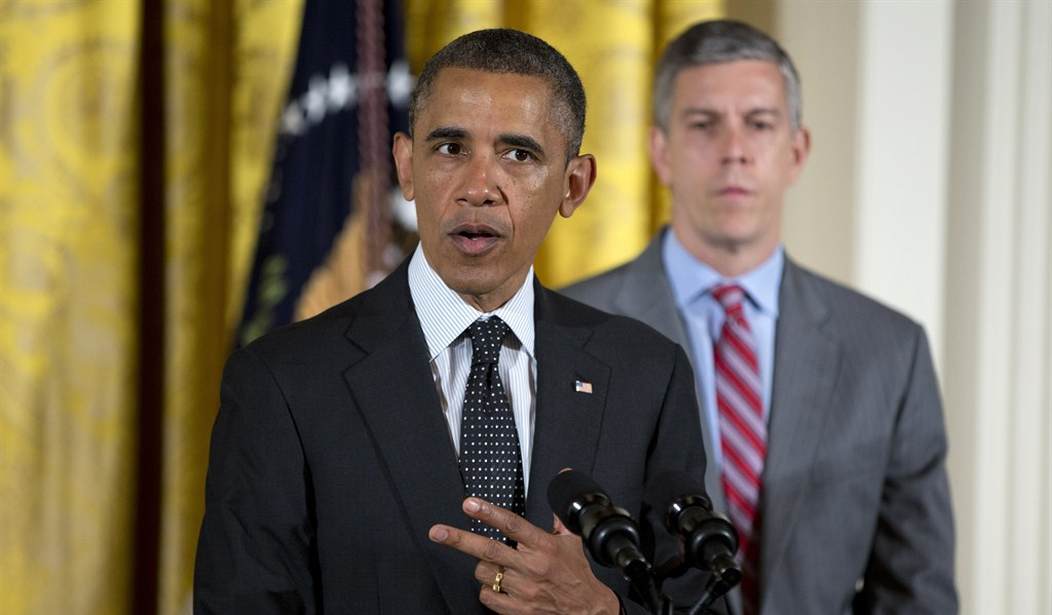Late last year, the EPA's critics — including Republicans in Congress — accused former EPA Administrator Lisa Jackson of using an email account under the name "Richard Windsor" to sidestep disclosure rules. The EPA said emails Jackson sent using her Windsor alias were turned over under open records requests. The agency's inspector general is investigating the use of such accounts, after being asked to do so by Congress.
An EPA spokeswoman described Jackson's alternate email address as "an everyday, working email account of the administrator to communicate with staff and other government officials." It was later determined that Jackson also used the email address to correspond sometimes with environmentalists outside government and at least in some cases did not correct a misperception among outsiders they were corresponding with a government employee named Richard Windsor.
Advertisement
Labor Secretary nominee Tom Perez used his private email account to leak information about official business while he was assistant attorney general for the Justice Department’s Civil Rights Division, the House Committee on Oversight and Government Reform said in a Wednesday letter to Perez.Now, the Associated Press is out with a blockbuster report showing many of President Obama's political appointees use personal email to avoid the Freedom of Information Act and other legal and transparency requirements on a regular basis.
Oversight Chairman Darrell Issa (R., Calif.) said it appears Perez used his personal email account almost 1,200 times since 2009 to conduct official department business, including communicating with organizations such as Planned Parenthood, the New York Times, and Talking Points Memo.
Some of President Barack Obama's political appointees, including the secretary for Health and Human Services, are using secret government email accounts they say are necessary to prevent their inboxes from being overwhelmed with unwanted messages, according to a review by The Associated Press.
The scope of using the secret accounts across government remains a mystery: Most U.S. agencies have failed to turn over lists of political appointees' email addresses, which the AP sought under the Freedom of Information Act more than three months ago. The Labor Department initially asked the AP to pay more than $1 million for its email addresses.
The secret email accounts complicate an agency's legal responsibilities to find and turn over emails in response to congressional or internal investigations, civil lawsuits or public records requests because employees assigned to compile such responses would necessarily need to know about the accounts to search them. Secret accounts also drive perceptions that government officials are trying to hide actions or decisions.
Recommended
Advertisement
The way to make government responsible is to hold it accountable. And the way to make government accountable is make it transparent so that the American people can know exactly what decisions are being made, how they're being made, and whether their interests are being well served.
The directives I am giving my administration today on how to interpret the Freedom of Information Act will do just that. For a long time now, there's been too much secrecy in this city. The old rules said that if there was a defensible argument for not disclosing something to the American people, then it should not be disclosed. That era is now over. Starting today, every agency and department should know that this administration stands on the side not of those who seek to withhold information but those who seek to make it known.
To be sure, issues like personal privacy and national security must be treated with the care they demand. But the mere fact that you have the legal power to keep something secret does not mean you should always use it. The Freedom of Information Act is perhaps the most powerful instrument we have for making our government honest and transparent, and of holding it accountable. And I expect members of my administration not simply to live up to the letter but also the spirit of this law.
I will also hold myself as President to a new standard of openness. Going forward, anytime the American people want to know something that I or a former President wants to withhold, we will have to consult with the Attorney General and the White House Counsel, whose business it is to ensure compliance with the rule of law. Information will not be withheld just because I say so. It will be withheld because a separate authority believes my request is well grounded in the Constitution.
Let me say it as simply as I can: Transparency and the rule of law will be the touchstones of this presidency.
Advertisement
Hm, it seems as though President Obama's political appointees did exactly the opposite of what Obama claimed he told them to do. One thing is clear, Obama's tenure in the White House is as transparent as the Potomac River.
UPDATE: Ed Morrissey posts on Twitter.
Remember when using secret communication strategies got a reporter accused of espionage?Good times, good times hotair.com/archives/2013/…
— Ed Morrissey (@EdMorrissey) June 4, 2013

























Join the conversation as a VIP Member